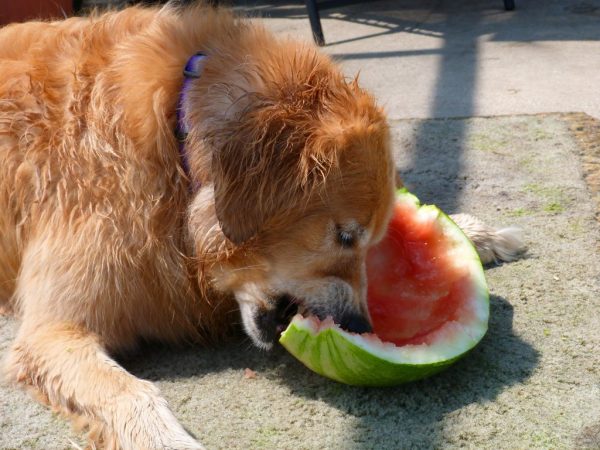
Do dogs eat watermelon?
Do dogs eat watermelon? The answer is yes, but this answer is not for kernels and shells. That’s because cappuccino seeds and bark can cause gastrointestinal upset and intestinal blockage in dogs. Watermelon is a low-calorie fruit packed with potassium and vitamins. A slice of watermelon has about 50 calories and is 92 percent water, with no cholesterol or fat. So, it is a healthy snack for your dog nutrition! But you should know how to prepare this snack. In addition, the amount is of course very important.
Can dogs eat watermelon?
We stated that can dogs eat watermelon. However, if you are going to give your dog any food other than food, you should definitely consult your veterinarian beforehand. In addition, if you start with small amounts, your dog will get used to the taste of watermelon more easily and you can understand whether there is an allergy or not. Although allergies are very rare, it is always useful to be careful.
Before giving your dog the opportunity to try watermelon, you should take a few precautions. The seeds in the fruit can cause a blockage in the digestive system. Large dogs can typically digest beans with ease, while smaller dogs may be more susceptible to intestinal obstruction. Also, a dog cannot eat the rind of watermelon because it is very difficult to chew. Eating watermelon rind also puts your dog at risk for intestinal blockages.
First of all, watermelon should not form a significant part of your dog’s diet. Overfeeding your dog with watermelon can cause stomachache, diarrhea, or gastrointestinal upset. Despite these potential risks, it’s important to remember that watermelon provides many health benefits for dogs, so you shouldn’t skip this delicious fruit. Although a great source of vitamins, watermelon can also help quench your dog’s thirst.
How to prepare watermelon for dogs?
After reaching the answers to the question of what do dogs eat, another important issue that we should pay attention to is the way the food is prepared. Sweet or sour, the most popular snacks in summer are fruits. They are both healthy and delicious. Those suitable for dogs can be prepared ideally and given to dogs safely.
- First, separate the watermelon from its rind.
- Slice into small, chewy pieces.
- Then remove the cores.
You can also freeze chunks of fruit to give your dog a cool and refreshing snack. Watermelon can also be mixed with other healthy ingredients like blueberries to increase its benefits and enhance its flavor.
When feeding watermelon to your dog, remember that it can be toxic to your dog if he ingests the seeds. However, it will not harm your dog if the beans are not removed beforehand. You can offer bite-sized pieces to your dog. If your dog’s stomach doesn’t respond well to watermelon, serve it in small pieces.
Benefits of watermelon for dogs
If you add watermelon to your dog’s diet properly, you will support it to gain many benefits. In addition to being rich in fiber and vitamins, it is a low-calorie fruit. Although watermelon has only 50 calories per slice, it is rich in potassium and vitamin C. The fruit contains no cholesterol or fat, so your dog is unlikely to gain weight from eating it.
- It keeps blood pressure levels in balance.
- It helps to prevent diabetes.
- It is a great source of antioxidants.
- It strengthens the immune system.
- It helps them stay strong and healthy.
Watermelon has many health benefits for dogs. In addition to lowering blood pressure, it strengthens the immune system, helps prevent diabetes, and is a great source of antioxidants. Young dogs should eat watermelon at a young


